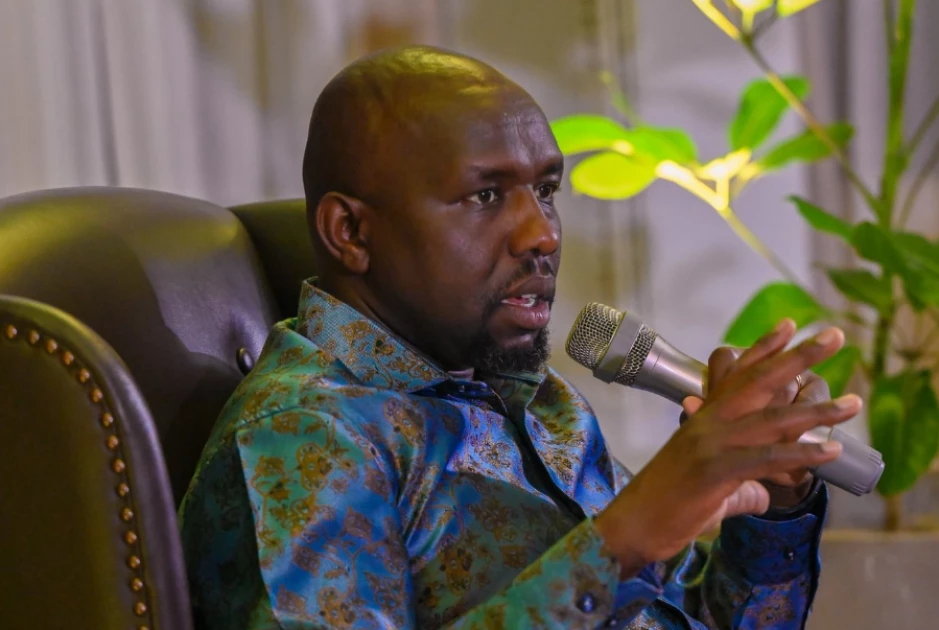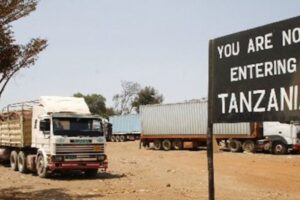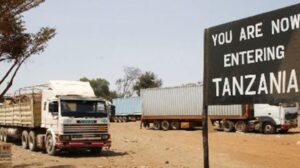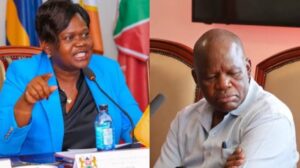Interior Cabinet Secretary Kipchumba Murkomen’s reaction to the BBC Africa Eye documentary ‘Madams: Exposing Kenya’s Child Sex Trade’ has drawn sharp criticism, as instead of focusing on addressing the disturbing realities exposed, he turned his attention to faulting the journalists.
The documentary, released on August 4, 2025, laid bare the ugly truth of underage sex trafficking in Maai Mahiu, showing how girls as young as 13 are lured into the trade, often facilitated by truck drivers.
Many expected the Ministry of Interior to take immediate and decisive action to protect the children, but Murkomen’s comments appeared more concerned about Kenya’s image than the welfare of the victims.
Speaking to the press, Murkomen claimed the documentary failed in its purpose because some girls allegedly lied about their age to gain “promised sponsorship” from the BBC. He stated, “Our investigations have established that the BBC team primarily sought underage girls involved in sex work.

However, some of the girls falsified their age to qualify for the promised sponsorship by the BBC team. No arrests have been made so far but investigations are ongoing including financial records and call data to link these parties and tracing witnesses.”
He went further to warn that police would take action against the journalists behind the exposé. Such a response raises serious questions about the priorities of the ministry. Instead of treating the documentary as a wake-up call to combat rampant exploitation, the focus shifted to attacking the messenger.

The documentary featured powerful and troubling testimonies, including one from a woman named Nyambura, who stated, “Prostitution is a cash crop in Maai Mahiu; the truckers basically fuel it.
And that’s how we benefit. It’s been normalised in Maai Mahiu.” These words point to a deeply entrenched crisis that demands urgent government intervention, yet Murkomen’s statements seemed to undermine the severity of the problem by casting doubt on the victims’ accounts.
The Ministry of Interior should have been at the forefront of tackling the networks that prey on vulnerable children, but Murkomen’s remarks risk silencing victims and discouraging whistleblowers.
Following the exposé, the National Police Service launched investigations, and the Office of the Director of Public Prosecutions instructed the Directorate of Criminal Investigations to submit findings within seven days.
In its statement, the ODPP reminded authorities that Article 53 of the Constitution guarantees children protection from abuse, exploitation, and violence.
This constitutional duty lies squarely with the Interior Ministry, making Murkomen’s attempt to shift blame both irresponsible and telling of deeper incompetence in handling child protection matters.

By faulting the BBC instead of owning up to the government’s failures, Murkomen has shown a worrying tendency to protect the image of his ministry at the expense of justice.
Child sex trafficking is a grave crime, and dismissing evidence on the basis of disputed ages does nothing to dismantle the networks involved.
Kenya needs leadership that confronts the problem head-on, not one that diverts attention to journalists exposing the truth.
Murkomen’s stance risks making the country look less like a victim of bad press and more like a government unwilling to confront the crimes happening under its watch.





















Add Comment